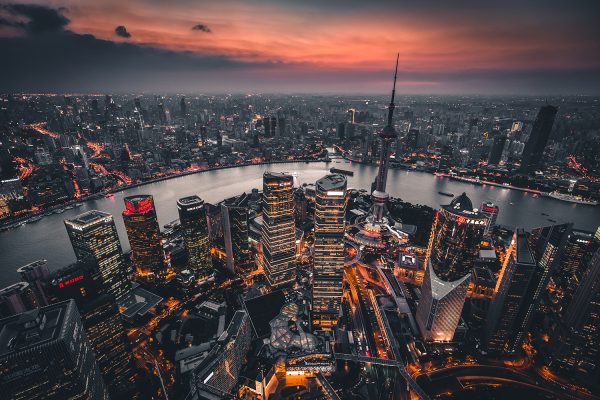
Donald Trump’s disinterest in the transatlantic alliance, and Vladimir Putin’s attempts to undermine it, have left Europe with little choice but to turn the world’s fourth center of power: China.
The two aren’t natural allies. The EU has long irked the Chinese with its lectures on democracy and human rights. The EU insists on dealing through multilateral institutions when China would prefer to throw its weight around in bilateral talks.
But the world’s second and third economies are condemned to work together in the era of “America First”.
Putin-Trump attack
Trump is hostile to China, blaming it for the deindustrialization of his country. He has vowed to raise taxes on Chinese imports.
Trump has no use for NATO, the World Trade Organization and other international groups. To his mind, they profit off American generosity without giving the United States anything in return.
In this way, he unwittingly undermines what can broadly be termed the liberal world order.
Putin, on the other hand, is actively hastening its demise: by violating treaties, annexing territory from his neighbors, bullying smaller nations and financing anti-establishment politicians in Europe and the United States.
China is the only power that has the wherewithal to help Europe resist this Putin-Trump attack on the world as we know it.
Low bar
It clears what Andrew Small, a fellow at the German Marshall Fund of the United States, calls a “low bar”: China follows basically rational principles and doesn’t seek to subvert the international system.
The same cannot be said about either Putin or Trump.
On issues like climate change and global trade, China has become a more reliable partner.
It may not always like the Western politicians it must deal with, but at least China doesn’t support their opponents.
Nor has it deployed its capabilities in cyberspace to subvert Western elections.
China may not share liberal Western values, but it has no interest in promoting its views on minority rights around the world.
Nor has it launched a comprehensive effort to throw doubt on the credibility of the Western media.
Threat to the system
According to Small, Beijing sees the rise of populist forces in the West as more of a threat than an opportunity, given their propensity for upending the global economic order on which its rise depends:
Even as China advances its own version of national exceptionalism, it wants a global system that works and the institutions that underpin it to hold together.
At the peak of the financial crisis, China rejected a Russian suggestion to dump its holdings in the mortgage giants Fannie Mae and Freddie Mac, which would have put further stress on Washington.
China has at times taken advantage of divisions in the EU, but it supports European integration on the whole. It did nothing to aggravate the European debt crisis and advised against Brexit.
Walk the talk
The imperatives of a closer relationship are there. Putting flesh on the bones of a Sino-European accord could still prove difficult.
European officials were heartened when Chinese president Xi Jinping defended globalization in his inaugural address to the World Economic Forum in Davos, Switzerland this year. But his government still makes life difficult for foreign companies.
China benefits from an open world economy, but it doesn’t always like the openness to go both ways. Opaque import requirements and discretionary licensing procedures make it difficult for Western companies to sell in China. Westerners are also barred from acquiring significant stakes in Chinese firms.
Cecilia Malmström, the EU’s trade commissioner, has urged China to “walk the talk” on economic reform. Sigmar Gabriel, the German vice chancellor, has called for a “level playing field” and and warned that Europe will no longer allow “foul play”.
The question now is if China feels it needs Europe as much as Europe needs China in order act on such admonitions.
